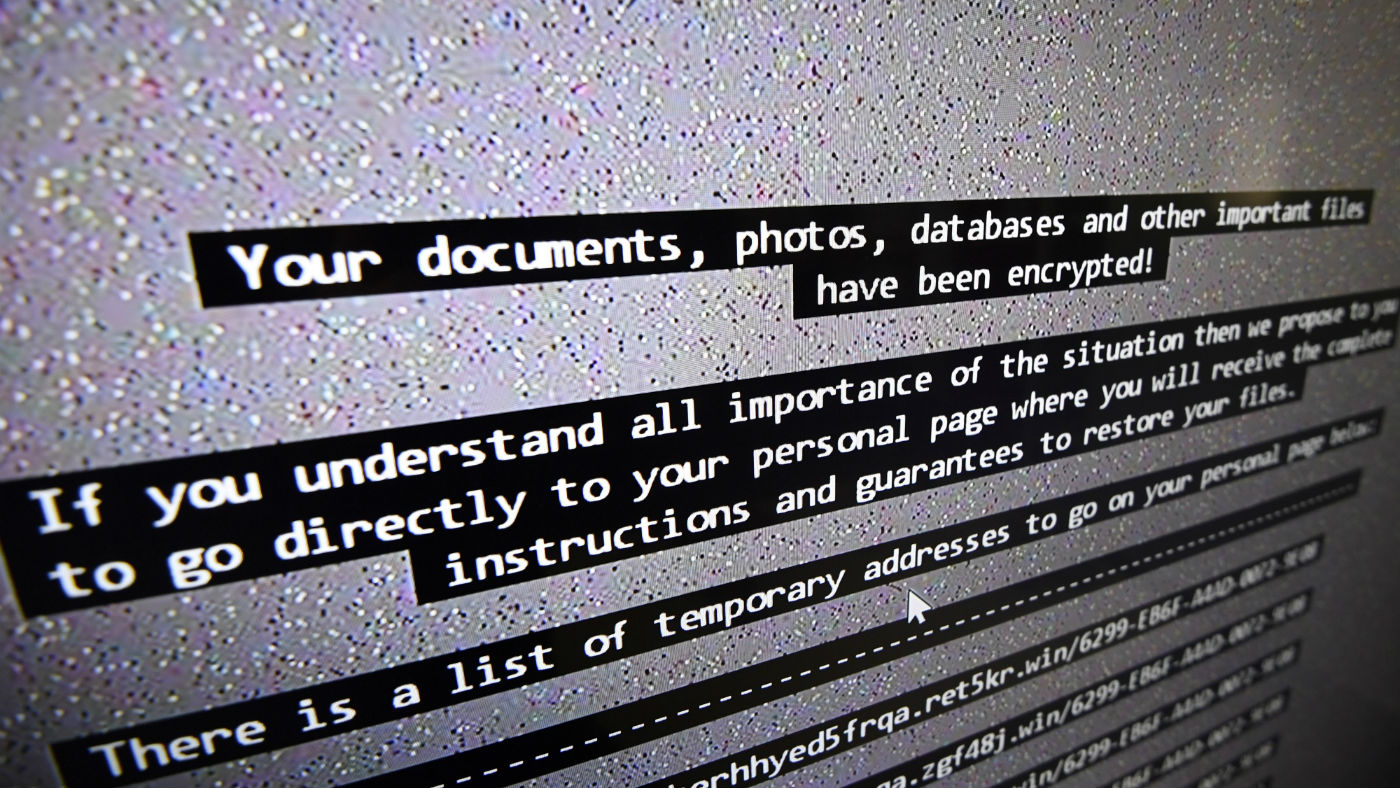Can cybercrime 'rehab' help young offenders?
Training camp in Bristol aims to steer teenagers away from criminal hacking

A free daily email with the biggest news stories of the day – and the best features from TheWeek.com
You are now subscribed
Your newsletter sign-up was successful
A growing number of large-scale computer hacking cases has taken place this year, disrupting the operations of major companies and causing sensitive files to be leaked by cybercriminals.
Major hacks in 2017 alone include the global Wannacry malware attack, which held the computers of 200,000 people from 150 different countries at ransom.
But a report by the BBC says the National Crime Agency (NCA) is looking to catch young cybercriminals before they commit serious offences and help them put their computer skills to good use.
The Week
Escape your echo chamber. Get the facts behind the news, plus analysis from multiple perspectives.

Sign up for The Week's Free Newsletters
From our morning news briefing to a weekly Good News Newsletter, get the best of The Week delivered directly to your inbox.
From our morning news briefing to a weekly Good News Newsletter, get the best of The Week delivered directly to your inbox.
The agency recently ran a "rehab" workshop trial for young offenders of cyber-related crimes in Bristol. Its mission is to help computer criminals learn about the "responsible use of cyber-skills" and get "advice about careers in computer security", the broadcaster says.
Attendees picked for the weekend-long workshop were known to the authorities, it adds, as they had been spotted carrying out minor computer crimes. If the workshop is successful, the NCA will roll out others across the country.
How do people get involved in hacking?
Sky News reports that the average age of cybercrime suspects is 17. It says that the availability of "low-level hacking tools" encourages criminal behaviour.
A free daily email with the biggest news stories of the day – and the best features from TheWeek.com
Mustafa al Bassam, who was arrested in 2011 at the age of 16 for hacking offences, told the broadcaster: "I started learning how to program from a very early age, when I was about nine or 10".
He adds: "From there I realised the ways that computer programmers could make mistakes that would introduce computer vulnerabilities into their software, which would allow hackers to gain access to their systems.
"I realised that this was a really powerful tool."
Such attacks are typically "motivated by idealism" and the desire among teenagers to impress their "mates", says The Guardian, rather than stealing money.
Former member of the Anonymous hacking group, Jake Davis, told the newspaper: "I was motivated as a teenager by the idea that the internet was this utopian space that shouldn't be controlled or filtered or segmented or chopped up into little blocks and distributed out".
He says that the internet "should be open and free and anyone in the world should be able to use it."
Davis, who was banned from using the internet for two years after being arrested in 2011 for hacking a government website, says "there is still a place for that kind of idea of freedom online, but we got a little bit out of hand."
What does the NCA want to achieve?
The NCA told the BBC that the skills shown by young cybercriminals were almost identical to those of certain IT professionals. It says it hopes the workshop will help young offenders put their skills towards a "more positive and legal use".
"Attendees learned about the different roles computer security staff take on, including forensic analysis", says the BBC, as well as "network protection and mounting attacks on companies". Participants were also given "coding challenges" to solve problems within computer systems and security networks.
One of the key factors that drives young people into hacking is the "rush" it gives, one of the attendees told the broadcaster. But according to the unnamed participant, who is male, "you get the same rush" and "the same excitement" from practising it legally.
"Now I know cyber-security exists it sounds like it would be something I really, really want to go into," he said.
Those who attended the workshop would be "monitored to see how their experience changed them", the BBC says.
What careers are there in hacking?
Bug bounties are one of the simplest ways to legally use hacking skills and get paid for them. Companies ask private hackers to deliberately break their website or security system. If done successfully, the hacker can earn thousands of pounds.
Apple announced its own bug bounty programme last year, reports TechCrunch, allowing hackers to earn up to $200,000 (£153,000) for identifying flaws in the firm's security architecture.
Other careers in hacking including supporting web defence systems for companies, where people can be hired either by a company directly or through a private agency. An example of this is NeighborhoodHacker, says Business Insider, which helps customers protect their personal data.
-
 Local elections 2026: where are they and who is expected to win?
Local elections 2026: where are they and who is expected to win?The Explainer Labour is braced for heavy losses and U-turn on postponing some council elections hasn’t helped the party’s prospects
-
 6 of the world’s most accessible destinations
6 of the world’s most accessible destinationsThe Week Recommends Experience all of Berlin, Singapore and Sydney
-
 How the FCC’s ‘equal time’ rule works
How the FCC’s ‘equal time’ rule worksIn the Spotlight The law is at the heart of the Colbert-CBS conflict